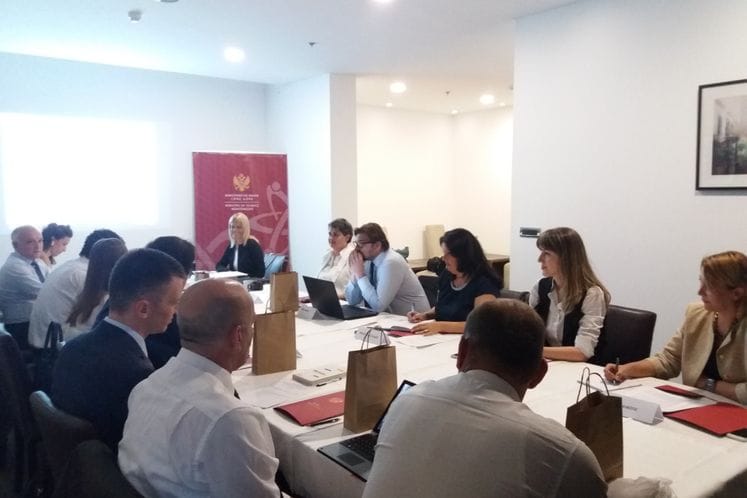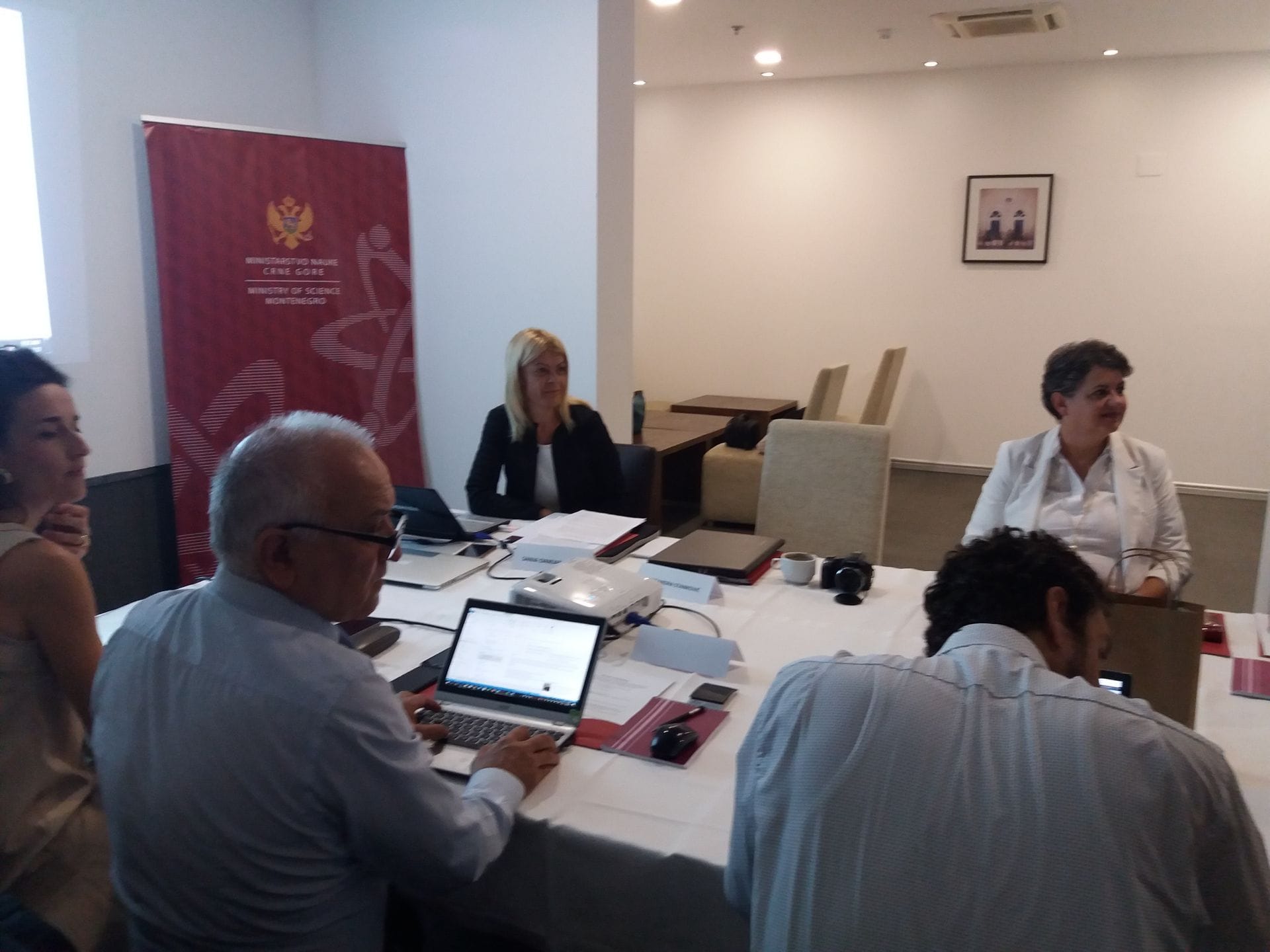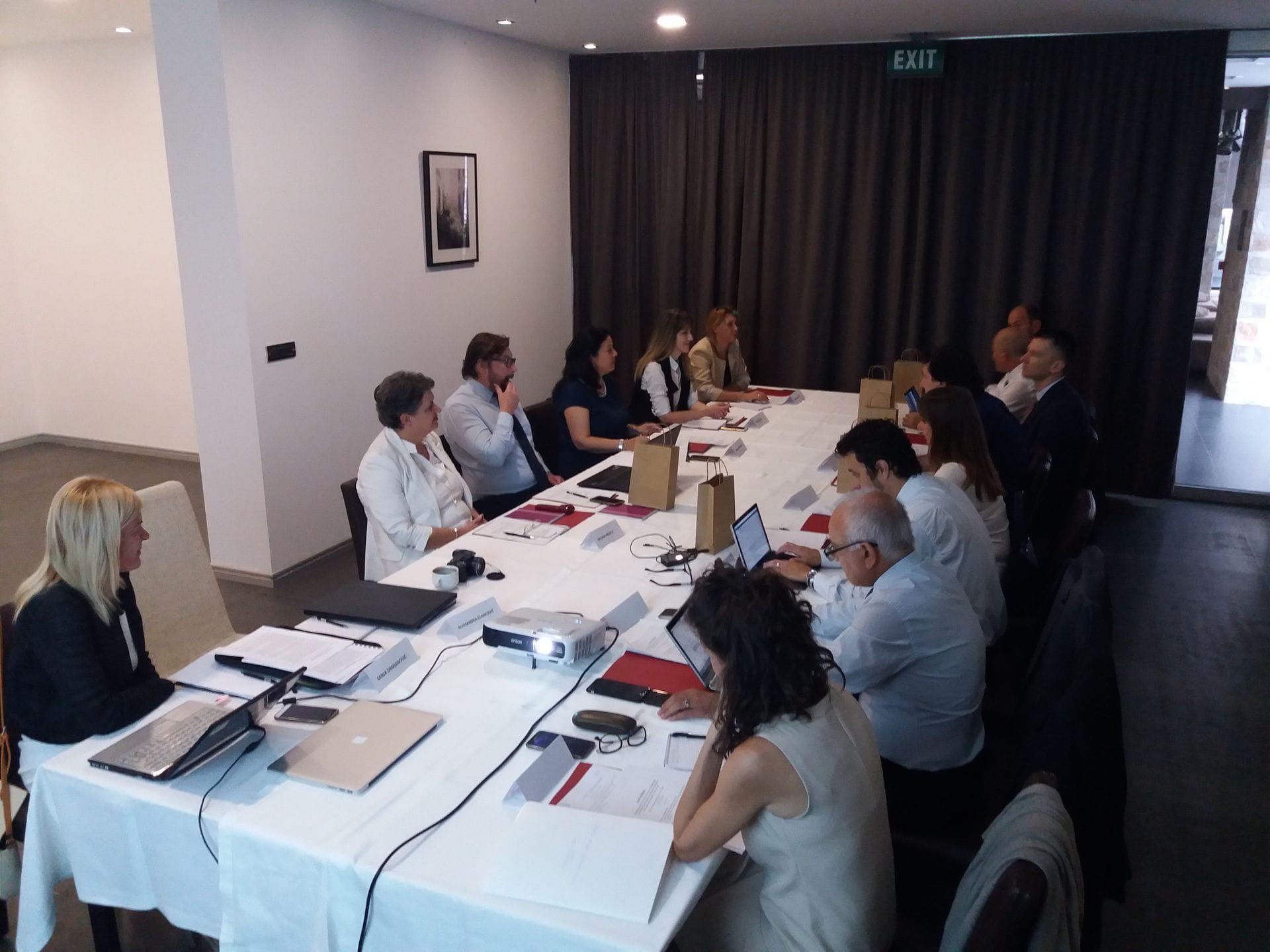- Government of Montenegro
Ministry of Education, Science and Innovation Representatives of line ministries of the countrie...
Please note: The page below represents the archived content relating to the previous Government of Montenegro. Some of the information might be inaccurate or outdated.
Archive
Representatives of line ministries of the countries of South East Europe meet to discuss the Declaration on the Establishment of the International Scientific Institute

Published on: Sep 12, 2017 • 6:37 PM Author: Ministry of Science


On 7 and 8 September 2017, the Ministry of Science of Montenegro organized a scientific conference at hotel Avala in Budva, where the representatives of line ministries of the countries of South East Europe considered the draft Declaration of Intent that expresses the consent of the countries to the Initiative to establish an international scientific institute with the mission of “Science for Peace”.
The conference was officially opened by the Minister of Science of Montenegro, Dr. Sanja Damjanović, who used her introductory address to present the current status of the Initiative, as well as the steps to follow and instruments aimed at further implementation of the project, which is already being considered in detail.
The conference involved the following participants: Kostadin Kostadinov, Deputy Minister in the Ministry of Education and Science of Republic of Bulgaria, Urban Krajcar, Director General in the Ministry of Education, Science and Sports of Slovenia, Staša Skenžić, Head of the Section for International Cooperation in the Ministry of Science and Education of Croatia, Tijana Knežević, Deputy Minister in the Ministry of Education, Science and Technological Development of Serbia, Jasmin Branković, Deputy Minister in the Federal Ministry of Education and Science of Bosnia and Herzegovina, Vilma Tomco, Director of the Section for Innovation in the Ministry of Innovation and Public Administration of Albania, Fidan Kozhani, Head of the Section for Innovation and Technology and Murteza Ousdautaj, Director of the Section for Science and Technology in the Ministry of Education, Science and Technology of Kosovo.
The participants have exchanged their views on the text of the Declaration, the future time-frame for development of the Initiative, as well as the concrete participation of their respective countries in future education programmes for young experts from the region.
It was assessed that the Institute would contribute to the improvement of the economic situation in the countries of the region, increasing living standards, creating attractive jobs – especially for young people, as well as preventing brain drain.
The Ministry of Science of Montenegro is also aiming to organize a ministerial conference at CERN, during which the ministers of the countries of the region will officially sign the Declaration of Intent, with a view to transform the Initiative into a regional project.
Two groups of scientific experts, who are also members of international commissions, are currently working on the preparation of 'Concept Studies' for both options of the Institute. The experts will present the technical details of the project in late October in Montenegro.
The first option is 'Synchrotron Light Source', which enables research in various fields such as biology, chemistry, pharmacology, ecology, geology and engineering, with wide application in various branches of industry. The second option is Hadron Cancer Therapy and Biomedical Research: proton and ion beam accelerators represent the most successful instrument for treating cancer today.
The conference was officially opened by the Minister of Science of Montenegro, Dr. Sanja Damjanović, who used her introductory address to present the current status of the Initiative, as well as the steps to follow and instruments aimed at further implementation of the project, which is already being considered in detail.
The conference involved the following participants: Kostadin Kostadinov, Deputy Minister in the Ministry of Education and Science of Republic of Bulgaria, Urban Krajcar, Director General in the Ministry of Education, Science and Sports of Slovenia, Staša Skenžić, Head of the Section for International Cooperation in the Ministry of Science and Education of Croatia, Tijana Knežević, Deputy Minister in the Ministry of Education, Science and Technological Development of Serbia, Jasmin Branković, Deputy Minister in the Federal Ministry of Education and Science of Bosnia and Herzegovina, Vilma Tomco, Director of the Section for Innovation in the Ministry of Innovation and Public Administration of Albania, Fidan Kozhani, Head of the Section for Innovation and Technology and Murteza Ousdautaj, Director of the Section for Science and Technology in the Ministry of Education, Science and Technology of Kosovo.
The participants have exchanged their views on the text of the Declaration, the future time-frame for development of the Initiative, as well as the concrete participation of their respective countries in future education programmes for young experts from the region.
It was assessed that the Institute would contribute to the improvement of the economic situation in the countries of the region, increasing living standards, creating attractive jobs – especially for young people, as well as preventing brain drain.
The Ministry of Science of Montenegro is also aiming to organize a ministerial conference at CERN, during which the ministers of the countries of the region will officially sign the Declaration of Intent, with a view to transform the Initiative into a regional project.
Two groups of scientific experts, who are also members of international commissions, are currently working on the preparation of 'Concept Studies' for both options of the Institute. The experts will present the technical details of the project in late October in Montenegro.
The first option is 'Synchrotron Light Source', which enables research in various fields such as biology, chemistry, pharmacology, ecology, geology and engineering, with wide application in various branches of industry. The second option is Hadron Cancer Therapy and Biomedical Research: proton and ion beam accelerators represent the most successful instrument for treating cancer today.
Related articles:
Request for prequalification Jan 17, 2025
Is this page useful?
